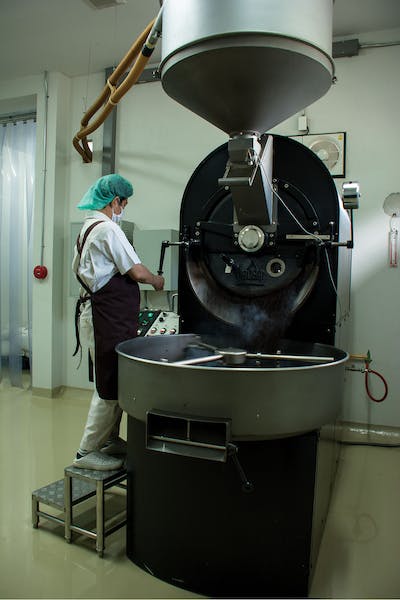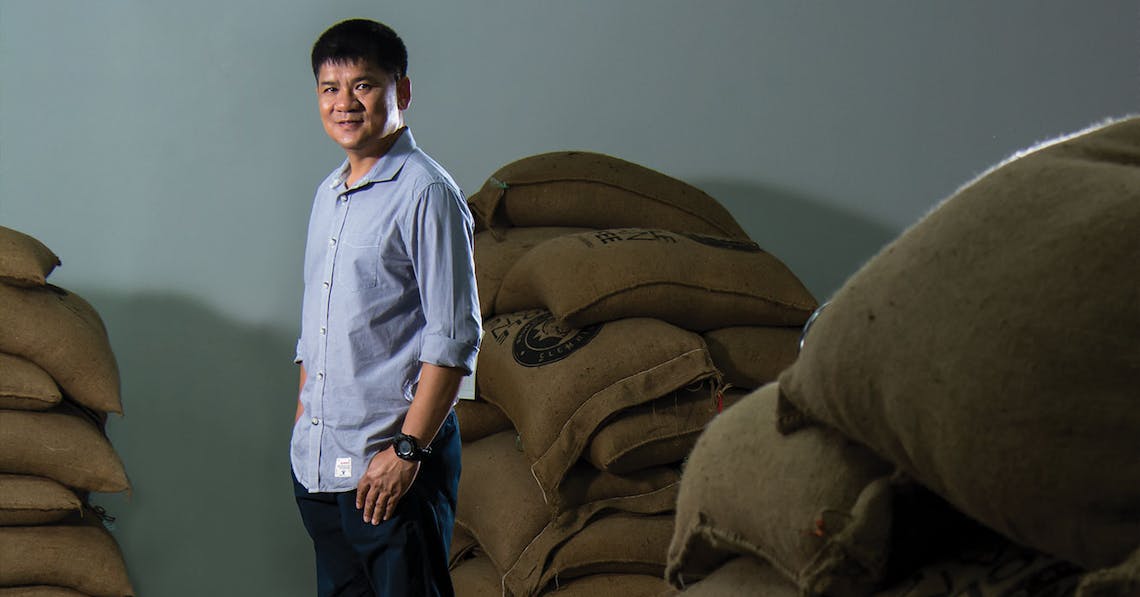When Wawee Coffee first began its life as a small café in Mae Sa, the owner, Kraisit Foosuwan, with an agricultural background, was a coffee amateur at best. Since humble beginnings 16 years ago, Wawee Coffee has slowly expanded, and Kraisit has been gaining knowledge every step of the way, bringing the company into prime position as one of Thailand’s most well-known and respected coffee producers.
“I’m an Americano man myself,” said Kraisit as he prepared the Citylife team some coffee in the kitchen of the nerve-centre that is now his international coffee franchise. “I prefer to drink coffee hot, to get the best aroma, and avoid milk or cream as it masks the pure coffee flavours.” Now a self-acclaimed and universally recognised expert on coffee, he talks with confidence about all things coffee. “Every branch of Wawee Coffee has its beans supplied from Doi Wawee,” Kraisit explains as he takes us on a journey through the different stages, locations, flavours and aromas of their coffee. High up on Doi Chang is where his main farm has been for many years, utilising the rich soils and the cool air of the mountains to produce some genuinely top notch coffee beans.
With several qualifications, awards and accolades under his belt, including the Professional Coffee Roasting Qualification from the Speciality Coffee Association of Europe (SCAE), Coffee Tasting training by the Specialty Coffee Association of America (SCAA), Kraisit spends much of his time tasting coffee, and growing both his coffee and his company to ensure the best of the best.
“I didn’t know this at first, but we have discovered that even the same coffee bean species taste different depending on where it was grown,” explains Kraisit as he began to lead us through the processing factory. “Each doi produces its own flavour, mostly due to the quality of the soil, the weather and several other natural factors that affect each plantation differently. If you drink a coffee made with beans from a plantation that has had years of fertilisers added to it, you can really tell the difference – but when you try beans from a fresh patch of soil, yet to be destroyed by fertilisers, the aroma is just so much more impressive.”
Although striving to produce only organic coffee, Kraisit admits that it will take time to get all farmers to embrace organic. “We have around 40 rai of land across the north where people are growing our coffee – we never mix our beans so each packet you buy is exclusive to the doi it was grown on.” This way, consumers know where their coffee comes from, how it was grown and most importantly, whether it is organic or not. “The problem is that many of our farmers would struggle to have even a reasonable yield of coffee in soils that have been damaged by fertilisers if they were to stop using them – so most farmers can’t afford to take that loss and that change which is needed to switch to organic farming.” He continues to explain that due to farmers using fertilisers for years on end, the soil is low in nutrients at the start of the next crop cycle, and to get back to an equal yield after switching from fertilisers to organic farming techniques could take as long as three years to achieve. “Right now, only five rai is dedicated to organic coffee farming, but the rest is slowly catching up.”
He also added that coffee grown organically has a much stronger flavour, as the plant must grow completely naturally, with its roots reaching out in search of naturally occurring minerals in the soil, whereas plants grown in fertilised soil have the nutrients right there for the taking, so their roots are small and weak, which inevitably affects the final product. However, things are changing. Only last year, Wawee Coffee completed the construction of their unique training centre, called the Wawee Coffee Organic Training Centre, which aims to help educated farmers and investors switch to organic farming. So far the internationally recognised centre has proved a great success, holding training courses with SCAE and hosting international groups who visit specifically to learn about Thai coffee plantations and organic farming techniques in the area, taking what they have learnt back to promote similar ideas and business models across the globe.

“The thing I think is most important to note about us at Wawee Coffee is just how much we have developed in just the last few years,” said Kraisit. It is clear that even after 16 years, coffee is still his passion, and walking into the roasting room you could see his mouth lift into a smile as he took his first deep breath. We couldn’t help pop a grin too as the roasting oven was opened and freshly roasted coffee beans rolled out onto a cooling pan, filling our nostrils with hot coffee scent “We produce roughly three tonnes a week, but it varies depending on our coffee bean yields and the quality of the roast,” Kraisit added while explaining that each roasting process is monitored by hand, ensuring the best roast each time rather than relying on computer decisions or specific timings. “Sometimes a batch takes 14 minutes, sometimes 18 minutes, and sometimes even more – the time is not what is important, the quality of the roast is. That is why we need experts at hand, observing and physically examining each and every roast to ensure perfection.”
What is evident is that Wawee Coffee is a company built on the passion of Kraisit himself, leading the way in coffee innovation and organic farming techniques that is inspiring other companies and local farmers to follow suit. For those who want to try the famous Wawee Coffee for themselves, it’s not hard to find. With 12 coffee shops in Chiang Mai and many more nationwide, their famous yellow logo is hard to miss. They also sell the coffee in its freshly roasted form, both beans and ground in all their coffee shops, and in a range of supermarkets such as Rimping and Tops nationwide.
